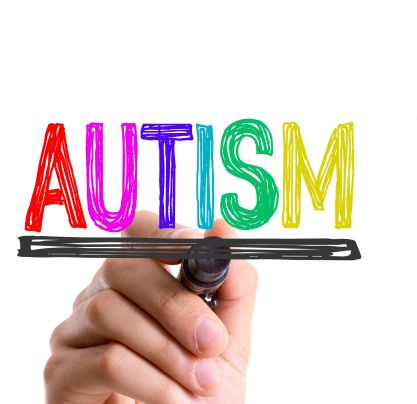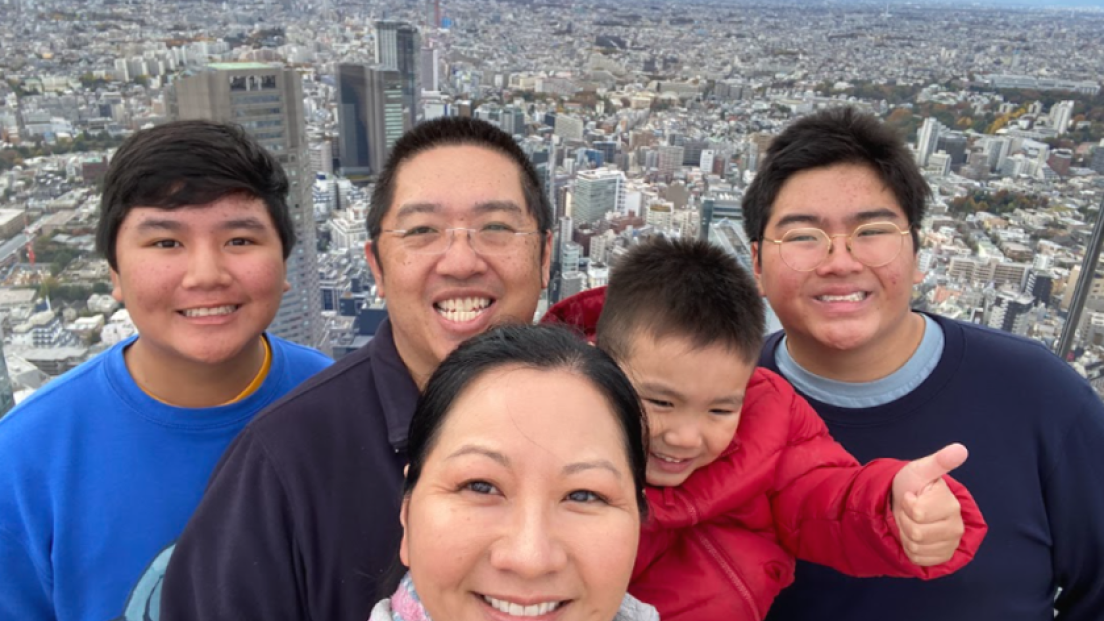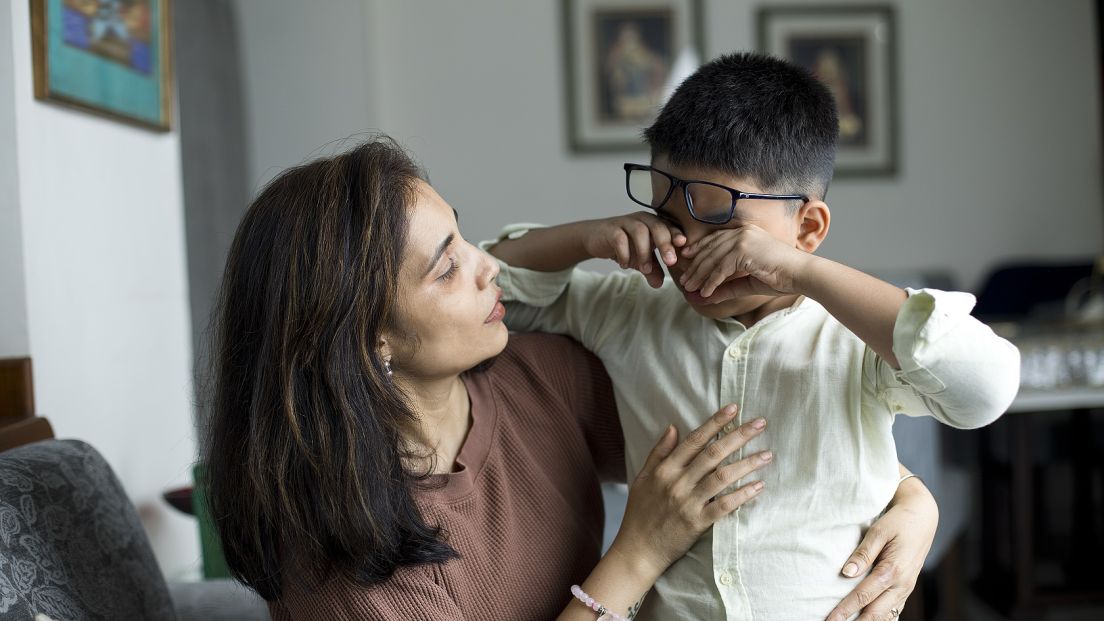A new beginning
Facing life-threatening dangers from the Myanmar military, Cing arrived in Australia six months pregnant, with her husband, two-year-old daughter, and an aunt who has an intellectual disability. She quickly enrolled in English classes while working full-time. “I wanted to secure finances to support my children,” she shared.
However, Cing faced an even greater challenge when her son, Mang, was diagnosed with level three autism, nonspeaking, and global developmental delay. This diagnosis was overwhelming for Cing, who reflected, “Although I suspected he was Autistic, receiving the formal diagnosis made me grieve for the challenges he will face and worry about his future.”
As she processed her son's diagnosis, Cing expressed her deep sense of loss: "I spent the night grieving and praying while the children fell asleep: ‘Why can't our lives be like everyone else's? I don't expect my children to be exceptional; I want them to enjoy their childhood. Growing up is exhausting, and all I hope for is that they complete Year 12, find jobs, marry, and raise their own families.’
While navigating the challenges of being a refugee, Cing had to abandon her goal of financial stability. “I couldn't manage my family obligations with my studies. I was overstressed and emotionally exhausted, so I decided to quit my course and hope for employment. This meant I couldn't save for a car or house, but I chose to care for Mang and have never regretted it.”
Challenging cultural stigma around autism
Cing faced additional challenges as an immigrant parent, including long wait times for services, language barriers, limited health literacy, and inadequate care from clinicians.1 Cing also encountered a challenge that some Australian providers might not fully understand: the strong influence of cultural beliefs surrounding autism.
"Predominantly Buddhist beliefs attribute disabilities to karma and reincarnation, leading parents to seek guidance from spiritual healers instead of pursuing medical help. Similarly, some Burmese Christians view disabilities as spirit possession or divine punishment, believing that prayer can restore a child's normalcy. Many also attribute disabilities to pregnancy-related dietary issues, a result of bad parenting or poor discipline. Because of these beliefs and perspectives, some families hide their children's diagnoses or avoid seeking help, fearing gossip and feelings of shame.”
This can lead to blame directed at the mother, resulting in anger towards both her and the child. Consequently, children may face physical discipline for behaviours deemed inappropriate, which causes shame and social withdrawal for both the mother and child. This situation increases the risk of poor mental health, especially for mothers. The stigma surrounding autism negatively affects parents and child development. Misconceptions can lead to denial, anger and isolation, resulting in prejudice and discrimination that delay diagnosis and limit access to essential support.2
Cing shared how stigma affected her both personally and in her community. She expressed, “I talked to my husband about my concerns, but he believed Mang would outgrow his developmental delays. He tried disciplining him, yet Mang didn't understand, leading to tantrums. My husband labelled him a naughty, spoiled child. I believe it's crucial to seek solutions rather than assign blame, as blaming helps no one.”
Cing struggled with her spiritual beliefs about her son's disability. She questioned whether it was divine punishment and felt betrayed when her prayers for a normal life went unanswered. She realised her son was her "highest priority" and decided to shift her perspective, seeing him as "a gift from God." By breaking away from cultural norms, she found a new, supportive church community that welcomed her son and provided the help she needed.
Finding support
Cing sought assistance from the Australian Migrant Resource Centre (AMRC) and attended their workshops to understand her son's disability.
With support and encouragement from the AMRC, Cing felt empowered to navigate the complexities of the NDIS. “I needed help accessing support from NDIS and had to persist by asking questions,” she recalled. “When I finally received funding for my child, I wanted to understand how to use it effectively.” Guided by AMRC and other professionals, including speech and occupational therapists, Cing followed their advice to better support her son’s development.
With newfound knowledge and wisdom, Cing embarked on a transformative journey away from a fear-filled social environment. This empowered her to stand tall, make thoughtful decisions regarding NDIS funding, face challenges head-on, and support her son in the best way possible. Cing highlights, “The therapists taught us how to make friends and help my child regulate his emotions during conflicts using techniques like counting, deep breathing, and asking for help.”
Building understanding
Sharing personal experiences can also help in decision-making. Cing explains her approach.
Cing also encourages parents and siblings to be involved in a child's world, promoting understanding through positive family experiences. “Mang's interests shift, and it's essential to investigate the reasons behind his new behaviours patiently. At the age of six, he became obsessed with trains. He loved taking the train to McDonald's in Adelaide, so every Saturday I would take Mang with his siblings into the city. Initially, his siblings found it boring, but over time, they came to understand his happiness and began to share in the experience. Then Mang's sisters encouraged these trips, which not only enhanced his positive emotions but also helped him learn social interactions. I explained things in a way he understood, building his trust.”
Cing's narrative emphasises the importance of wisdom and cultural awareness for service providers, particularly regarding the stigma of parenting an Autistic child. Understanding the cultural backgrounds and trauma of refugee parents is crucial. Many Burmese refugees have endured severe hardships in their homeland and lived as refugees before arriving in Australia. These cultural and social factors, particularly accumulated trauma, can significantly influence a parent's ability to accept and cope with raising Autistic children.3
When discussing a child with parents, especially mothers, Cing emphasises the importance of “listening kindly.” Compassionate listening is essential, as stigma can be difficult to articulate in a professional setting, especially for Burmese mothers who may struggle to share their thoughts and feelings. “Many Burmese mothers do not have opportunities to express their opinions, thoughts, and feelings.” Shame is often internalised, making it crucial to create a safe, trusting, and caring environment where parents feel comfortable sharing their deepest thoughts and feelings. “I want to encourage parents and people with disabilities by reminding them that every life is valuable,” Cing exclaims.
The following article was written by Cing, a Burmese refugee, and Vanessa Leane, a Wellbeing Researcher and Consultant, with support from the Australian Migrant Resource Centre (AMRC).
Cing has bravely faced numerous challenges to support her child's well-being, leading the AMRC to choose her as a champion for culturally and linguistically diverse mothers of children with disabilities.
The photos above do not represent the Cing or her child to protect privacy.
Aspect provides therapy supports to many culturally and linguistically diverse families, including refugees. You can check out our services or fill in our enquiry form for further information.
References
- Nataly, L., O'Reilly, M., Sigafoos, J., Lancioni, G. E., & Sanchez, N. (2021). A review of barriers experienced by immigrant parents of children with autism when accessing services. Review Journal of Autism and Developmental Disorders, 8(1), 10–21. https://doi.org/10.1007/s40489-020-00216-9
- Ng, C. S. M., & Ng, S. S. L. (2022). A qualitative study on the experience of stigma for Chinese
Parents of children with autism spectrum disorder. Scientific Reports, 12, Article 19550. https://doi.org/10.1038/s41598-022-23849-8 - Smith, J., Bent, C., Said, H., Hudry, K., Constantine, C., Goonetilleke, N., Patel, K., Ijaz, R., Franks, K., Wood, S., Aulich, A., & Green, C. (2024). "We go through trauma": South Asian parents' experiences of autism diagnosis and early supports for their autistic children in Australia. Research in Autism Spectrum Disorders, 114, 102408. https://doi.org/10.1016/j.rasd.2024.102408






